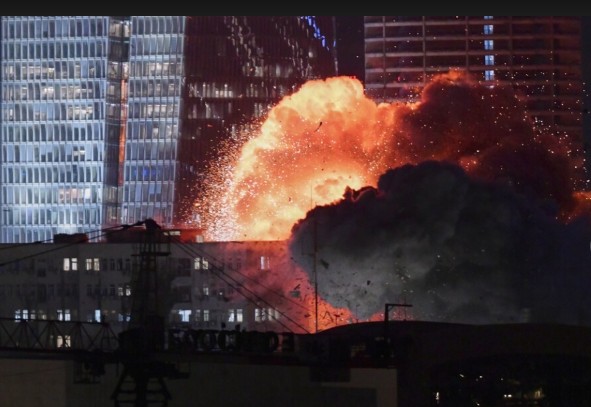The recent escalation of hostilities between Israel and Iran—marked by drone strikes, missile exchanges, and rising regional tensions—presents economic risks for Bangladesh.
As a developing country reliant on energy imports and remittance inflows from the Middle East, Bangladesh is acutely exposed to global geopolitical shocks.
The spectre of a prolonged conflict in the Gulf threatens to frustrate the country’s fragile post-pandemic recovery, already under strain from high inflation, a depreciating currency, and dwindling foreign reserves.
Global crude oil prices have recently surged beyond $75 per barrel amid fears that supply routes—especially the vital Strait of Hormuz—could be disrupted. This narrow passage accounts for nearly 20% of the world’s oil shipments, and any blockade or attack in this region could send energy prices soaring past $100 per barrel, according to international analysts.
For Bangladesh, which imports over 90% of its fuel needs, the implications are stark. Higher global prices directly translate into rising domestic fuel and electricity costs. This, in turn, pushes up transportation, manufacturing, and food production expenses, placing a significant burden on both businesses and low-income households.
“This isn’t just about fuel—it’s about survival for exporters like us,” said Mohammad Riazuddin, a Narayanganj-based RMG factory owner. “When diesel prices go up, our shipping costs rise, and we struggle to keep foreign buyers interested. If this continues, we may have to cut shifts or lay off workers.”
Economists including Mustafizur Rahman have warned that the economic pain from oil price spikes will be especially harsh for energy-dependent countries like Bangladesh. The costlier imports will widen the trade deficit and further deplete already strained foreign currency reserves. As of May 2025, Bangladesh’s reserves had fallen below $20 billion—enough for barely three months’ worth of imports.
“As a fuel-import-dependent country, this oil price hike will cause pain to our country,” he told an English daily on Friday. “If the aftereffect is sustained, it will cause a bad impact on the trade balance and current account balance.”
At the same time, remittance inflows—another economic lifeline—are at risk. Over 75% of Bangladesh’s remittances originate from Gulf countries such as Saudi Arabia, the UAE, and Qatar. Any escalation of the conflict could create labour market instability in these host nations. This would have a cascading effect on domestic demand, which has been a key driver of GDP in recent years.
Trade logistics are also under threat. Bangladesh’s economy is heavily reliant on its ready-made garments (RMG) sector, which contributes more than 80% of export earnings. Stable global shipping routes are essential for importing raw materials like cotton and exporting finished garments.
Disruptions in the Red Sea and Arabian Sea—due to proxy attacks by groups such as the Houthis—have already prompted shipping companies to reroute vessels, resulting in longer delivery times and higher freight costs.
These supply chain issues are compounding inflationary pressures. Bangladesh’s inflation has remained stubbornly high, hovering above 9% for around three years, with food inflation recently exceeding 12%. The combination of rising global energy prices and elevated logistics costs could push inflation even higher. This erodes purchasing power, especially for low- and fixed-income groups, and reduces domestic consumption.


